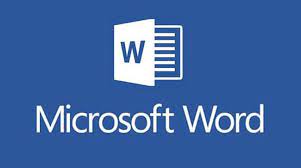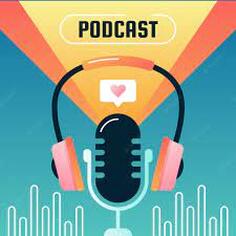 Here's the Short Answer It depends! You can certainly do a darned fine start on your own! You can even pass your work around to friends and family for extra eyes. All of this will get you closer to your finished, ready-to-post product. But ultimately, you also get what you pay for. But I'm Pretty Good with English & Grammar! Awesome! You'll be able to get your work that much closer to the finish line quicker! We reviewed in No Red Pens the myriad of editors eager to help you with your project. Do you realistically need all of these editors? Nope. Would it be advisable to get at least one proofreader or editor on your team? Admittedly, I'm biased, but I'd advise "yes." But My Mom (or Aunt Suzy) is An English Teacher! Fabulous! Family and friends are a great first step to polish things up. But they also love you, are (blessedly) incredibly biased, and think you do amazing work. These aren't particularly critical or fresh eyes for you, especially if you're talking about a project that's really important to you, like a book or new website. But What CAN I DO on My Own? Don't worry - you can do plenty on your own! Let's look at some ways you can really improve your own work before you consider hiring someone. MS Word What an amazing tool!
Items to Routinely Check This is just a start, but you'll get the idea.
A Step Above Word You may wish to check an amazing program called PerfectIt. It's a proofreading software program. They offer a free trial opportunity for you to run Word docs through for 14 days and a 30-day money back guarantee. It's a very powerful program that saves you a lot of using "Find" in Word. It depends how much you may decide to self-edit for whether you decide to purchase this tool. A word of caution - it catches many errors but not all. As with Word, you'll find this AI tool won't allow for your voice to necessarily shine through. You really can't beat ultimately working with a human for that final touch. Can I Edit Myself? Sure! To an extent. It's always best to have a fresh set of eyes on your project, especially someone who has training in what you're writing and isn't biased to love what you write, no matter what. It's like asking if you need to hire a lawn service, housekeeper, or mechanic. What are you willing or able to do on your own? Editors and proofreaders are all over the board with rates. You may wish to check a national organization such as the Editorial Freelancers Association for more on average rates to expect and more considerations when hiring an editor or proofreader. How much do you edit on your own? Are you a whiz with Word or other programs to maximize your time and expenses? Love to hear your process - leave a comment!
0 Comments
 Podcasts to Learn & Grow I adore podcasts! I listen to them on my daily 3-mile walks or to keep me company during household chores. I love these as they're simply audio - no video - and require no wifi; just download and go. Top Podcasts for Editors & Proofreaders This seems a rather niche topic with few podcasts available. I'm grateful for those who bother to create content! These are all very informational, educational, and often introduce me to other resources. I'll link the websites as there are a multitude of podcast players available. Click the underlined titles to head to their websites. The Editing Podcast by Louise Harnby & Denise Cowle - These ladies are definitely top of the heap and at the top of their genre! They've been podcasting for 4 years and have over 115 episodes. They continue to post content roughly every 2 weeks or "fortnight" as one is from England and the other Scotland. Harnby specializes in fiction topics, Cowle specializes in nonfiction, and they both cover content marketing. I highly recommend this one! The Modern Editor Podcast by Tara Whitaker - I recently binge listened to all 25 of her episodes. She's on a seasonal break but promises to return. Great, real content about freelancing, editing, marketing, and mindset sharing her 10 years of experience. The Proofreading Business Podcast by Elizabeth Wiegner - New to podcasts with 8 episodes so far, Elizabeth covers topics for proofreaders in general and transcript proofreading. She posts about every 2 weeks and is featuring guest interviews in recent episodes. The Confident Freelance Editor by Malini Devadas - Malini has been doing podcasts since 2020 but took a break for a year, only recently returning to podcasts approximately every 2 weeks. She has over 70 episodes at this time with a very no-nonsense, down-to-earth style covering freelancing, editing, marketing, and mindset topics. The Editor's Half Hour by Nadia Geagea Pupa - This is a new podcast with 8 episodes so far. These focus on interviews with those in the book business covering a wide range of topics. The Independent Editor by Stuart Horwitz and Madison Utley - This podcast is on hiatus currently but I highly recommend it! These two have a great chemistry with something of a mentor/mentee relationship coming through in the interview style as they share their experiences in the freelance editing/publishing field. Stuart has been editing and ghost writing for years, whereas Madison is new to the business. Lots of great information here. I hope they bring it back! Definitely worth a listen. What podcasts do you listen to? Do you know others focused on editing, proofreading, or marketing?  Do I need an Editor or Proofreader? Excellent question! The answer is "It depends." If you're a published author, you're likely familiar with the different types of editors that may be involved with your work. For the majority of us, especially those of us doing our best on our own as "indie" authors or freelance/small business owners, the lines blur quite a bit. Developmental Editor This form of editing is more "big picture" and helps flesh out the story. This editor helps find plot holes, reviews pacing and character development, and is the first eyes on a project in its development stage. Line Editor This editor works line-by-line to review style, consistency, and general readability. The goal is to tighten sentence structure for clear language. Copy Editor This editor fine-tunes things, correcting grammar, punctuation, and spelling while reviewing style guides. Proofreader This is the final set of eyes to be sure literally every "i" is dotted and "t" is crossed! This is your final check for typos, punctuation, and grammar. A proofreader doesn't change words or thoughts, but fixes what's there assuming all general editing has been handled. Do I need ALL of these? Short answer? No. Many of these roles have become somewhat blended depending on situations, especially for more "indie" or independent authors or creators. Editors and proofreaders are available for ALL written works, from fiction to nonfiction, but also for websites, blogs, business materials, education proposals/papers, and more. Sometimes a Line and Copy Editor cover the same purpose. These folks may be available to also proofread, but you really should have a third set of eyes on your work at that point. We're all human and miss things with our eyes seeing what we anticipate should be there. It often comes down to cost. There's the reality - what is your budget? You want to maximize your own return on investment. But you need to make sure you have an excellent product to get those sales! The old adage "Sometimes you have to spend money to make money" comes into play. All of these editors will have a fee. Some editors and proofreaders may offer multiple services, but you'll be discussing what a fair rate is for their time, effort, and expertise. But can we leave the red pen out of this? Certainly! The good news is, most don't even use red pens anymore as work is reviewed electronically via Word docs, Google docs, pdf's, or simply online files or products. Suggestions can be "old school" with cross-outs and additions for you to see, or can be hidden within "track changes" so you just see it all smoothed out. This is YOUR baby! Any editor or proofreader worth their salt will be sensitive to the hard work you have put into the project. All editors and proofreaders do is offer suggestions. It's up to you whether to accept them or not! Editors and proofreaders not looking for errors to be mean, but looking for ways to help you shine your brightest! Have you worked with each style of editor or been able to find multi-talented folks to move your projects forward? What type of assistance are you looking for? |


 RSS Feed
RSS Feed
